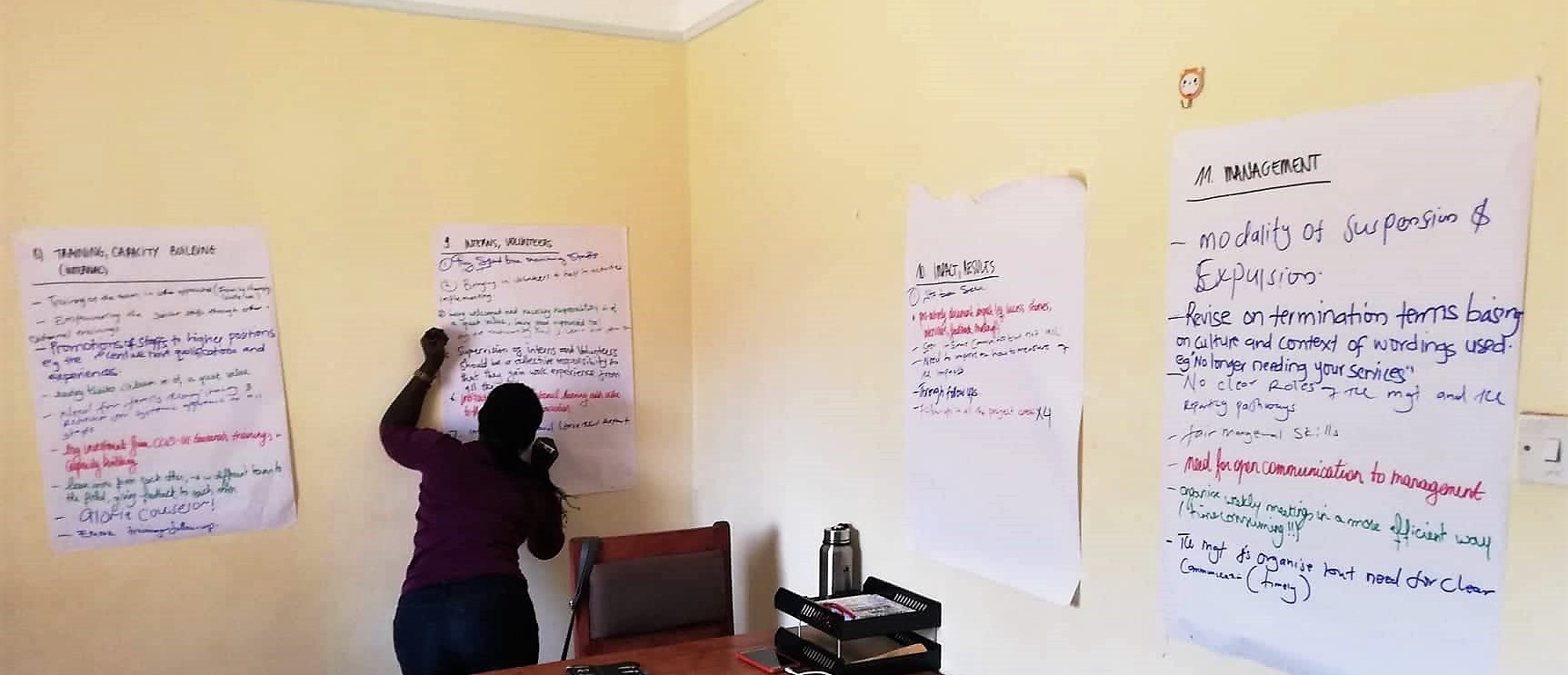THE IMPACT OF VIOLENT BEHAVIOUR IN ADOLESCENTS ON POST-CONFLICT RECOVERY PROCESSES IN NORTHERN UGANDA
Country
Uganda
01-04-2010 - 15-03-2015
Belgian Developmental Cooperation (BTC)
Peace building and post-conflict reconciliation have become central focus of diverse interventions targeting war-affected persons living in post-conflict settings. However, literature review shows that the factors associated with this post-conflict peace building and reconciliation are only little documented. This study will therefore examine the local concepts of violent behaviour, peace and reconciliation from the view point of adolescents, teachers and parents. It will also establish the prevalence of violent behaviour among adolescents living in post conflict Northern Uganda, and attitudes held by them towards peace and reconciliation. Finally the study will examine the implications of the findings about the concepts, nature of, and attitudes towards peace and reconciliation with regard to future prevention and intervention programs targeting reduction in violent behaviour in post conflict settings.
social context
The study will be carried out in northern region of Uganda, a region currently in a recovery stage after a prolonged war between the Ugandan government and the LRA rebel group that lasted for over 20 years, resulting into large scale internal displacement, abductions, death, destruction of homes, basic infrastructure and services including education and health. In this conflict adolescents lost their parents and family members and many were abducted, used as child soldiers, and physically and sexually abused while in rebel captivity. Although the Juba peace process that aimed at bringing an end to the conflict between the government and the LRA flopped, the rebels’ withdrawal from Uganda to the Democratic Republic of Congo brought security improvements to the people of Northern Uganda. No major violent incidents attributed to the LRA were reported from mid 2006 in Uganda, and displaced persons began to leave the IDP camps for areas closer to their original homes. However, upon return the people were faced with various problems including lack of basic services, missed educational and economic opportunities, and psychological and social problems.
OBJECTIVES
The research will study the association of violent behaviour in adolescents and attitudes to peace and reconciliation, including attitudes towards organizations targeting peace and reconciliation among war affected adolescents in post-conflict Northern Uganda, with the aim to document:
1) The local perception of violent behaviour and attitudes towards peace and reconciliation among war affected adolescents, teachers and parents
2) The prevalence of violent behaviour and variables associated with it among war affected adolescents
3) The perception of adolescents, teachers and parents towards programs targeting peace and reconciliation
1) The local perception of violent behaviour and attitudes towards peace and reconciliation among war affected adolescents, teachers and parents
2) The prevalence of violent behaviour and variables associated with it among war affected adolescents
3) The perception of adolescents, teachers and parents towards programs targeting peace and reconciliation
PROJECT DESCRIPTION
The study will be conducted within 2 rural communities in Northern Uganda that suffered similar level of exposure to war violence. One of the communities will be chosen because it is receiving or received an intervention programme aimed at building peace and reconciliation, while the other one will be picked because it is not receiving any such intervention. Qualitative and quantitative research designs will be used in three phases of the study. Key informant interviews will be held with organizations working in the field of peace building and reconciliation in order to get information about their peace and reconciliation activities including their goals and objectives.
A first study will collect data on the local perceptions of violent behaviour and of peace and reconciliation attitudes through separate focus group discussions with parents and school-going and non school-going adolescents, and interviews with teachers selected from the designated communities. Secondly this study will adapt existing questionnaires to the local cultural and social contexts of Northern Uganda.
The Second study will employ the questionnaires adapted in study 1 to collect data on violent behaviour and its associated factors from school-going and non school-going adolescents in the two rural communities. This study will address the prevalence of violent behaviour and its associated factors including traumatic experiences, internalizing problems (PTSD, depression and anxiety), socio-demographic characteristics, and current daily life stressors of the participants
The third study will use focus group discussions and interviews to look at how adolescents, parents and teachers think about peace building and reconciliation programmes based on the findings from the previous studies. This study will detail implications for future intervention and prevention programmes targeting peace building and reconciliation among adolescents in post conflict settings.
A first study will collect data on the local perceptions of violent behaviour and of peace and reconciliation attitudes through separate focus group discussions with parents and school-going and non school-going adolescents, and interviews with teachers selected from the designated communities. Secondly this study will adapt existing questionnaires to the local cultural and social contexts of Northern Uganda.
The Second study will employ the questionnaires adapted in study 1 to collect data on violent behaviour and its associated factors from school-going and non school-going adolescents in the two rural communities. This study will address the prevalence of violent behaviour and its associated factors including traumatic experiences, internalizing problems (PTSD, depression and anxiety), socio-demographic characteristics, and current daily life stressors of the participants
The third study will use focus group discussions and interviews to look at how adolescents, parents and teachers think about peace building and reconciliation programmes based on the findings from the previous studies. This study will detail implications for future intervention and prevention programmes targeting peace building and reconciliation among adolescents in post conflict settings.
